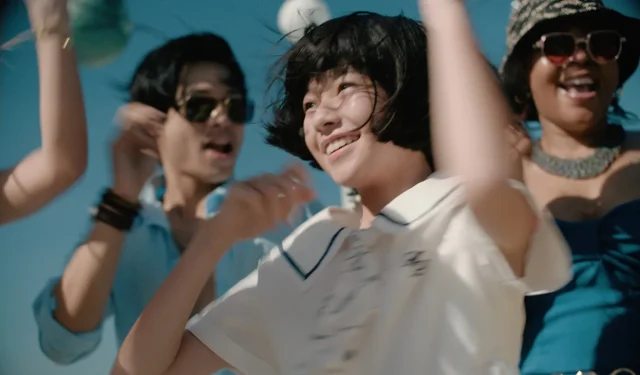Exploring Childhood Innocence in Chie Hayakawa’s Renoir
Following her remarkable debut with Plan 75 at Cannes in 2022, director Chie Hayakawa takes a poignant turn back in time with her latest film, Renoir. This new work, which premiered at the prestigious film festival, delves into the life of an 11-year-old girl navigating a difficult summer marked by her father’s terminal illness. Hayakawa continues to demonstrate her exceptional story-telling abilities, offering an intimate glimpse into the complexities of childhood emotions wrapped in a distinctly nostalgic narrative.
A Slow Dance Through Memory
Set against the backdrop of suburban Tokyo in 1987, Renoir unfolds at a leisurely pace, mirroring the tempo of a reflective stroll. Through the adept editing of Anne Klotz, the film seamlessly transitions between poignant moments, allowing viewers to fully absorb the emotional weight carried by its young protagonist, Fuki, portrayed beautifully by newcomer Yui Suzuki.
The Journey of Fuki
Throughout the film, we accompany Fuki as she weaves her way through the vibrant yet complex world around her. With a mix of curiosity and introspection, she explores new hobbies, forges friendships, and grapples with the inevitabilities of loss. Hayakawa’s direction maintains a steady hand over this delicate narrative, although certain sentimental moments may come across as overt given the film’s otherwise subtle framework. Nonetheless, the film’s poetic aesthetics and emotional depth are likely to resonate with audiences well beyond the festival scene, particularly among arthouse enthusiasts.
The Art of Lyrical Storytelling
In line with other lyrical coming-of-age narratives, such as All Dirt Road Taste of Salt, Renoir rewards viewers who invest in its fragmented storytelling and surreal undertones. The film resonates like a hushed whisper, compelling viewers to lean in closer, as if Hayakawa is sharing cherished memories in a quiet conversation with her audience. The themes of the film strike a profoundly personal chord for the director, mirroring her own experiences with a terminally ill parent.
Visuals Through a Child’s Lens
Collaborating once again with cinematographer Hideho Urata from Plan 75, Hayakawa crafts a whimsical aesthetic that reflects Fuki’s childlike wonder. In one notable scene, Fuki’s gaze lingers on a visitor her mother has introduced, revealing her innate curiosity and the unique intensity of her perspective.
A Startling Introduction
The film opens with a chilling sequence that sets the tone for Fuki’s complex emotional landscape. Watching a montage of wailing infants on a VHS tape, she faster discards it in a trash room, where she is confronted by a mysterious man. This encounter leads to a life-altering moment as Fuki reflects on mortality through a story she writes for school about grief—a narrative that eventually raises concerns for her well-being.
Navigating Turbulent Waters
Fuki’s childhood is overshadowed by the anxiety of adult life; her father, Keiji (played by Lily Franky), is battling cancer, leaving her mother, Utako (Hikari Ishida), feeling overwhelmed by impending loss. As her parents navigate the emotional labyrinth intertwined with financial strain, Fuki embarks on a quest to alleviate her solitude through friendships and pastimes, including her growing fascination with magic and telepathy.
The Bonds of Friendship
Forming a close bond with Kuriko (Yuumi Kawai), a girl renowned for her meticulously braided hair, Fuki also dabbles in a tentative relationship with an older boy, Kaoru (Ryota Bando), whom she connects with through a phone hotline. However, amidst these experiences, the heartache of transition emerges when Kuriko relocates, leaving Fuki feeling abandoned once again.
The Power of Performance
Suzuki’s compelling portrayal of Fuki captivates viewers, embodying both her innocence and the intensity of her inquisitive nature. Fuki’s decision to meet Kaoru in person injects a sense of tension and anxiety into the story, as spectators worry for her safety and emotional well-being. Fortunately, Hayakawa’s empathetic guidance ensures Fuki’s character avoids perilous consequences, focusing instead on the intricacies of her emotional journey.
Conclusion: An Emotional Triumph
Renoir stands as a testament to Hayakawa’s artistry, capturing the intricate weave of childhood and adult worries. The film succeeds in bringing Fuki’s emotional complexities to the forefront, making it a resonant exploration of innocence and the inevitable sadness that accompanies the realities of life.


